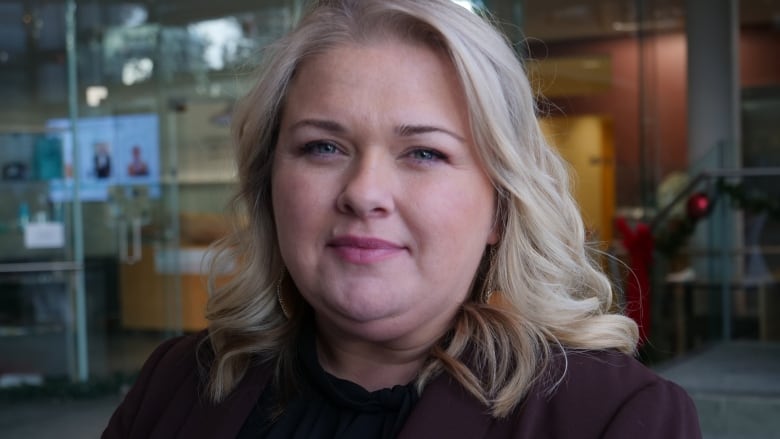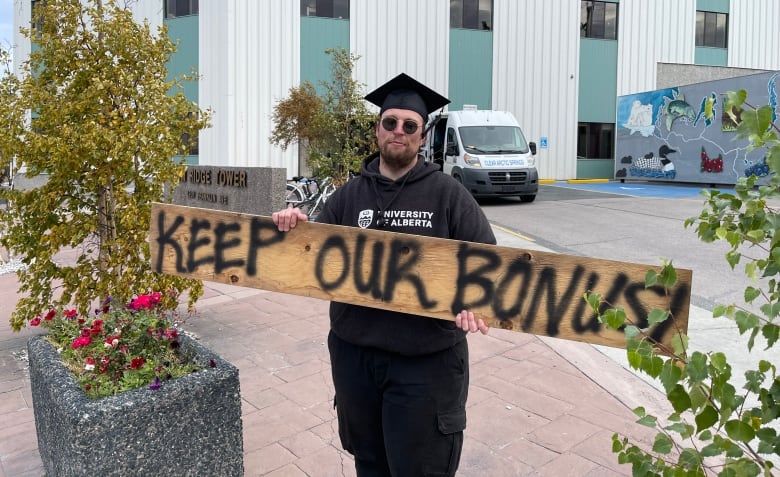Loan-forgiveness program for students wasn't working, says N.W.T. education minister
Minister Caitlin Cleveland says northern bonus was not keeping graduates in the N.W.T.

N.W.T. Education Minister Caitlin Cleveland is defending a recent decision to axe a financial aid program that gave students up to $2,000 a year off their post-secondary education loans if they live and work in the territory.
In an interview on CBC's The Trailbreaker on Wednesday morning, Cleveland said the northern bonus program was supposed to encourage post-secondary students to stay in the territory. But, she said, it wasn't having the intended effect.
"What we're seeing in the territory is an overall reduction in the amount of students that are coming back and are staying in the North," she said. "Whether or not they do that before they finish paying off their loans or after, it's both. It's not one or the other."
The northern bonus incentive launched in 2015 to attract more graduates to the territory. The money was applied to student loan debt for both local and non-local students who live in the N.W.T.
Students could get up to a maximum of $10,000, and the N.W.T.'s Department of Education, Culture and Employment said the program had been costing the territory about $600,000 a year. The territory announced it was cutting the incentive last week.
Cleveland said the cut comes as the territory grapples with the financial fallout of responding to the COVID-19 pandemic and environmental disasters like forest fires and flooding. While things like the remissible loan program and income assistance are written into legislation, the northern bonus program was not.
She said cabinet was looking for ways to better fund "things that matter to Northerners," like health care.
"This [northern bonus] is one of the programs that we looked at and decided that this year, we would dial that one back."
Nigel Rossouw, who went to Alberta for his post-secondary education but said he had returned to Yellowknife in part because of the now-cancelled bonus, led a one-person protest last week outside of the office where education department staff work.

He told CBC News he wanted to represent post-secondary students most of whom, at the time of the announcement, would have already left the territory for the school year.
Rossouw said hewants the government to go back and have another discussion about whether the policy change is the right direction. He also said he may not have returned to the North if not for the bonus, which he had received for a year and a half before it was cancelled.
He said the money he saved was helping him pay for a surgery.
In her Wednesday morning interview, Cleveland agreed $2,000 per year is "a lot of money" and said the switch from living at home to living away from home is a "big deal" for students. But, she said, it's not an insurmountable one.
And, she pointed out, the N.W.T. still has "the most lucrative student financial assistance program across Canada." Students can apply to have between $6,000 and $12,000 of their loan forgiven each year, depending on what community they're from, she said.
"There [is] still a tremendous amount of opportunity here at home for our students, and so I really do hope that they come home," said Cleveland.
With files from Shannon Scott and Joanne Stassen












_(720p).jpg)


 OFFICIAL HD MUSIC VIDEO.jpg)
.jpg)



























































































